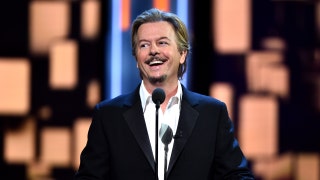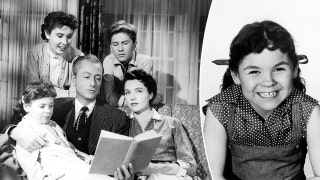“For Greater Glory” takes its cues from a bygone era of Technicolor Golden Age epics and delivers a sprawling political drama steeped in old-fashioned Hollywood romanticism.
During the 1920s, Mexico was thrust into civil war when President Plutarco Calles (Rubén Blades) outlawed Catholicism, banned religious activity, confiscated all church property and exiled clergy. Priests and nuns that protested were arrested or publicly executed and hung on display from roadside posts. Rebel factions formed by schoolboys to farmers to artisans rose up and thus started the Cristero War.
Andy Garcia gives an excellent performance as the legendary General Gorostieta, a militaristic mastermind hired to lead the directionless rebels against Calles. In pure movie fashion, one man becomes a symbol, uniting a country in its struggle for civil liberty and religious freedom. But Gorostieta’s story is an interesting one: He’s an atheist who joins the cause out of boredom – and a little prodding from his wife (Eva Longoria) -- but he quickly finds worth and value when he’s introduced to a young boy, José Luis Sanchez.
Newcomer Mauricio Kuri – with the most moving performance in the film -- is young José, a mischievous schoolboy who witnesses the atrocities of Calles’ law first hand and makes a pilgrimage to join the Cristeros and fight alongside General Gorostieta.
Like Steven Spielberg’s “War Horse,” “For Greater Glory” is a film displaced in time. This historical adventure feels like a fifty-year-old film minus Charlton Heston. Director Dean Wright (a visual effects master on films like “Lord of the Rings” and “Titanic”) keeps things old fashioned but never crosses the line to pastiche. With sun-soaked cinematography, beautiful panoramic vistas, a lush James Horner score and multitudes of idealist characters and pious speeches, “For Greater Glory” feels like a war movie from a much more innocent time. Though Wright deftly uses that old Hollywood glory against us; he alternates between Hallmark card sentimentality and raw contemporary violence. As the war progresses, the film becomes increasingly violent but never loses its classic film visage, which, whether intentional or not, is eerie and memorable.
Though similar in style to “War Horse,” “For Great Glory” is a much more satisfying journey, though could benefit from some additional editing. There’s a clear structure to the film and even the stereotypical characters feel better defined, from the fiendish Calles to Ambassador Dwight Morrow (Bruce Greenwood) to the contentious rebel “El Catorce” (Oscar Isaac).
Screen legend Peter O’Toole makes a brief appearance as the staunch Father Christopher and within those few moments the actor lives up to his reputation of an acting force to be reckoned with. From the iconic timbres of his voice to his statuesque appearance, at 80 years old, O’Toole hasn’t lost his edge one bit.
Meanwhile, Longoria is a lovely respite from the war-torn action scenes while Bruce Greenwood, Nestor Carbonell and Oscar Isaac round out the noteworthy supporting cast.
“For Greater Glory” is very heavy on religion, but a well-done war film nonetheless, overflowing with sentimentality and classic Hollywood adventure.














































